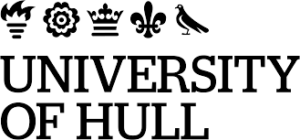A public research university in Hull, East Yorkshire, England is called the University of Hull. A wide variety of undergraduate and graduate programs, along with a strong focus on research, have made this 1927-founded institution well-known. Health, business, social sciences, and the humanities are just a few of the subjects in which the institution is well-known for its groundbreaking work in addition to its welcoming and open atmosphere.
The campus has many contemporary amenities, including as research centers, libraries, and dorms for students. The university also offers a wide range of clubs, groups, and sports opportunities for its active student body.

History and Overview
- Founded: 1927 as a university college and granted full university status in 1954.
- Location: Hull, East Yorkshire, England. The main campus is situated in the city of Hull, with additional facilities in Scarborough and a site in the city of London.
Campuses:
Hull Campus:
Central Hull, close to the city center.
Academic buildings, libraries, sports centers, student housing, and other student services are among the available facilities. It is home to the majority of the university’s departments and administrative offices.
Scarboro Campus:
Scarborough is a coastal town around 50 miles from Hull.
Characteristics: Known for its picturesque vistas and beach location. It provides programs in health, business, and social sciences.
Academic Structure:
The Faculty of Arts, Cultures, and Education provides programs in humanities, social sciences, and education.
The Faculty of Business, Law and Politics offers courses in business management, law, politics, and international relations.
The Faculty of Health Sciences focuses on health-related disciplines such as nursing, healthcare management, and public health.
The Faculty of Science and Engineering offers courses in engineering, computer science, physics, and chemistry.
Research:
The University of Hull conducts a wide range of research activities, including particular strengths in:
Energy: Research into renewable energy and engineering.
Health research focuses on healthcare breakthroughs and public health concerns.
Social Sciences: Research into social concerns, policies, and human behavior.
Humanities research focuses on history, literature, and cultural studies.
Admissions and Courses:
Undergraduate programs cover a wide range of subjects, with variable entry criteria. Common prerequisites include A-levels or similar qualifications.
Postgraduate programs include taught master’s degrees, doctoral degrees, and professional qualifications.
International Students: The institution welcomes students from all around the world and provides numerous support services to international candidates.

































